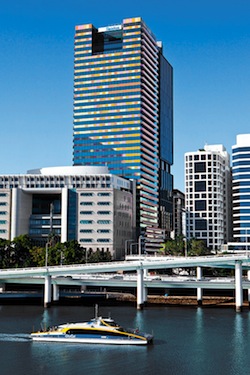 As our work becomes more complex it is even more important to give people enough time and the right environment to think effectively. Multitasking is the enemy of efficient and effective thinking, planning, creativity and problem solving. Indeed, there is good evidence that multitasking can be a menace in the workplace. How many times today have you started out with the intention to do something but “forgot” because you switched your attention to another task before you completed the first one. Industrial accidents, phone calls not returned, poor quality interactions with customers, deadlines missed, supplies not ordered, and bills not paid….. these are some of the consequences of so called “multi-tasking”.
As our work becomes more complex it is even more important to give people enough time and the right environment to think effectively. Multitasking is the enemy of efficient and effective thinking, planning, creativity and problem solving. Indeed, there is good evidence that multitasking can be a menace in the workplace. How many times today have you started out with the intention to do something but “forgot” because you switched your attention to another task before you completed the first one. Industrial accidents, phone calls not returned, poor quality interactions with customers, deadlines missed, supplies not ordered, and bills not paid….. these are some of the consequences of so called “multi-tasking”.
Multitasking also wastes time … the more complex the task, the more time it takes us to get back to where we were up to once the distraction or interruption is finished. Ringing phones, constant urgent emails, chatty co-workers, noisy open plan offices…. are all sources of distractions. Time pressure, high workloads and unrealistic management expectations can all result in the temptation to try multitasking. Pressure to get more and more done leads us to not “waste a moment”. Unfortunately, each time you are interrupted or distracted you take time to refocus and pick up our train of thought. The quality of the thinking is reduced, and solutions to problems may be inferior to what we might have done had we being able to continue the task uninterrupted.
The Multitasking Myth
It is important to realise that we cannot multitask… we can only switch our attention from one task to the other. This means that while we are not attending to the phone conversation with the customer because we are reading an email we are not “hearing” what the customer is saying and so we may misunderstand or miss some important detail due to “dual task interference”. Even if we think we can do both… we cannot do both well. If we are doing a new task, or a complex task, we will need to pay full attention in order to maintain our ability to do the task efficiently and without mistakes.
Our working environment can make a big difference to our ability to successfully complete tasks efficiently and effectively. It is important to organise with workload to minimise brain “overload”. If our brains are overloaded we become confused, lose our “cool” and become more “closed” to challenges or new ideas. We become distressed, mentally exhausted, and our behaviour becomes more unpredictable.
Tips for Reducing “Information Overload”
1) Encourage people to focus on one thing at a time….
2) Think about policies around emails and phone calls to ensure you allow people some “uninterrupted” time to do their work
3) When communicating to your team make sure you do not communicate too much information at once and
4) limit the number of poorly targeted communications (e.g., broadcast emails).
5) Emails should be clear and concise. The clear “labelling’ of information helps with cognitive processing
6) Go for simplicity when communicating a message
7) Check if your team are experiencing “brain overload” because if you manage this well your people will be more productive
8) Make sure people can go somewhere quiet to do complex or important tasks
9) Manage noise in open plan environments to reduce distractions and stress
10) Allow people time to “think” as well as “do”
References: Brainwise Leadership: Practical Neuroscience to Survive and Thrive at Work, Connie Henson and Pieter Roussouw, 2013 Your Brain at Work: Strategies for Overcoming Distraction, Regaining Focus, and Working Smarter All Day Long, David Rock, 2009
All rights reserved. This website or any portion thereof may not be reproduced or used in any manner whatsoever without the express written permission of the publisher except for the use of brief quotations embodied in critical reviews and certain other noncommercial uses permitted by copyright law. For permission requests please contact us at info@ronitaneal.com


 Feel free to send us any questions by clicking the button above.
Feel free to send us any questions by clicking the button above.

